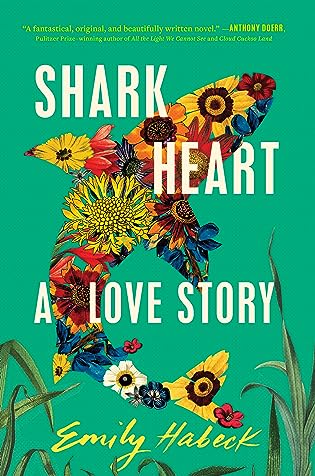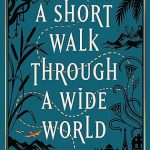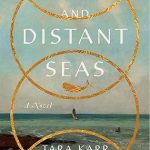 Shark Heart by Emily Habeck
Shark Heart by Emily Habeck Format: eARC
Source: supplied by publisher via Edelweiss
Formats available: hardcover, paperback, ebook, audiobook
Genres: literary fiction
Pages: 416
Published by Simon & Schuster on August 8, 2023
Purchasing Info: Author's Website, Publisher's Website, Amazon, Barnes & Noble, Kobo, Better World Books
Goodreads
A lyrical and provocative debut novel about newlyweds Wren and her husband, Lewis, who over the course of nine months, transforms into a great white shark.
For Lewis and Wren, their first year of marriage is also their last. A few weeks after their wedding, Lewis receives a rare diagnosis. He will retain most of his consciousness, memories, and intellect, but his physical body will transform into that of a great white shark. As Lewis develops the features and impulses of one of the most predatory creatures in the ocean, his complicated artist’s heart struggles to make peace with his unfulfilled dreams.
At first, Wren internally resists her husband’s fate. Is there a way for them to be together after Lewis fully transforms? Then, a glimpse of Lewis’s developing carnivorous nature activates long-repressed memories for Wren, whose story vacillates between her childhood living on a houseboat in Oklahoma, her time with a college ex-girlfriend, and her unusual friendship with a woman pregnant with twin birds. Woven throughout this daring novel is the story of Wren’s mother, Angela, who becomes pregnant with Wren at fifteen in an abusive relationship amidst her parents’ crumbling marriage. In the present, all of Wren’s grief eventually collides, and she meets her fears with surrender, choosing to love fully, now.
An emotional exploration of motherhood, marriage, transformation, and letting go, Shark Heart is an unforgettable love story about mothers and daughters, husbands and wives, animals and people—all while examining what it truly means to be human.
My Review:
Thanks mostly to superhero movies, when we hear the term mutant we tend to think of science experiments gone awry and people who have just a little bit extra in the DNA and what they do with that extra – as well as what gets done to them because of it.
This isn’t that kind of story about mutants and mutations. It’s both a bit more – and a bit less.
This also isn’t really a story about a man who became a shark and the woman who loved him. Although I wanted it to be – sort of a shark toothed version of The Shape of Water. But it isn’t that either. Shark Heart is a story about change and the way that love changes when the person we love goes through a transformation that we can’t follow.
And what happens after that. And after that. But also, before that.
Lewis and Wren marry, as so many people do, buoyed on a wave of love and hope. They expect the first year of their marriage to be the beginning of lifelong bliss and joy – albeit with a few of the typical bumps in the road for any couple that plans on being together for the long haul.
But it’s not to be. Well, it’s mostly not to be.
Early in that first year of bliss, Lewis is diagnosed with Carcharodon carcharias mutation. Putting it less scientifically, he’s turning into a Great white shark. Rapidly. Literally and not figuratively. In the version of our world that Wren and Lewis inhabit, this isn’t even all that uncommon. Lewis’ particular mutation is, but this is a world where it seems to have become relatively commonplace for people to mutate to animal form.
There are entire hospitals and specialty medical institutes and protocols and laws to deal with all the issues and medical needs of people who mutate and their caregivers. (And I am so curious about how this world works, but that’s not the story we get, either.)
Which gets back to what I said at the beginning, that Shark Heart is a story about change and transformation, and what happens to the humans when they make a drastic change or when drastic change is thrust upon them.
And definitely, absolutely, about what happens to the people who love them.
Escape Rating B-: Wren isn’t the first person – or unfortunately the last – to discover, after it’s too late in one way or another, that their new spouse is a gigantic, all-consuming predator and that they are now on a menu they didn’t know existed. The question is whether Wren’s situation is literal or merely a metaphor.
Which is a bit like The Crane Husband, not just because people transform into animals, but because it’s possible to interpret the transformation as metaphor even more than it is.
There were also a whole LOT of SFnal possibilities, and I confess that I wanted the story to go there rather than into the literary fiction it most definitely is. It’s clear from the bits we see in the story that a whole medical infrastructure has been created to deal with the issue of mutations, but for an SF reader we don’t get nearly enough of it for the world to make sense. (John Scalzi’s Lock In, especially the prequel Unlocked, did an excellent job of showing the institutional effects of the introduction of a planet-wide shift in lifelong medical conditions and their treatment.)
I did get really caught up in the part of the story about Lewis and Wren’s year of dealing with what’s happening to them both and their desperate and increasingly separate paddles up the River DeNial as it goes along. And I think I’d have liked the book a lot more if it stayed with them.
But this IS literary fiction, which means it has to take the reader backwards and forwards in time, both to how Wren got to be the person she is and to what happens to both Lewis and Wren after. Even though he’s a shark. For this reader, those later bits detract – at least until we get to the end and back to Wren and her life after Lewis and what he left behind.
I wanted this to be something other than it was, which is a ‘me’ thing and may not be a ‘you’ thing. I would have preferred the story I got if it had stuck with Wren and Lewis in a mostly forward-moving timeline – even if he was forcibly dropped out of that story halfway through. Because a story of her coping, whether literally or as metaphor, would have been enough to carry me through because I liked Wren and empathized with her a lot more than I expected to.
I picked this up because I was flailing, and it looked interesting and different. It was different and the first half was interesting and even sometimes compelling, but the second half just didn’t keep that momentum. But if you like literary fiction more than I do it might work better for you.

















3 thoughts on “Review: Shark Heart by Emily Habeck”
Comments are closed.